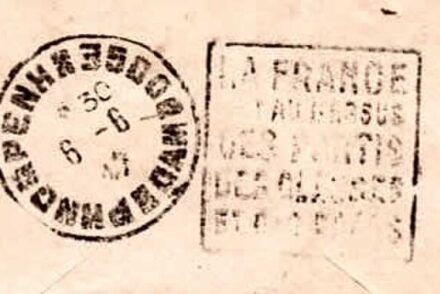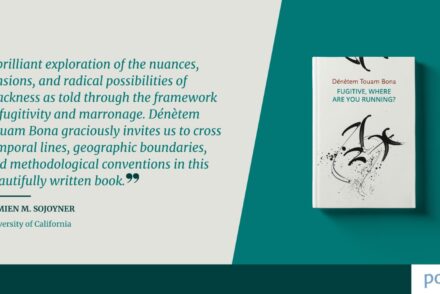Calls for Papers
1.1 Francophone Postcolonial Studies in the 21st Century
1.2 Fictions of African Dictatorship ed. by Charlotte Baker and Hannah Grayson
1.3 La veine plurilingue : vivre entre les langues, écrire en français
1.4 Special Dossier of Women in French Studies on Representations of Women in Martinican Literature
Announcements
2.1 Études littéraires africaines
2.2 Afriques Transversales
2.3 Riad Sattouf: The Arab of the Future
2.4 The Contemporary Roman Maghrébin: Aesthetics, Politics, Production 2000-2015
New Titles
3.1 L’empire de la littérature. Penser l’indiscipline francophone avec Laurent Dubreuil
3.2 Dictionnaire des communes, douars et centres d’Algérie
- Calls for Papers
1.1 Francophone Postcolonial Studies in the 21st Century
Society for Francophone Postcolonial Studies
In association with Liverpool University Press
Institute of Modern Languages Research, University of London,
Senate House, Malet Street, London WC1E 7HU
Friday 18–Saturday 19 November 2016
The first fifteen years of the twenty-first century in the francophone world have been turbulent, marked by natural disasters such as Hurricane Katrina and the Haitian earthquake, uprisings and conflicts including the 2005 French riots, the Arab Spring of 2010, the 2013 French intervention in Mali, and the Charlie Hebdo and Paris terrorist attacks in 2015. This conference aims to consider how such events have been negotiated by authors and producers of francophone postcolonial cultural responses. Through discussion of very recent cultural production from the postcolonial francophone world, we hope to begin to identify what sets the cultural products of the twenty-first century apart from those that came before. Whose are the new francophone voices to have emerged, and why? What are the specific challenges facing producers of francophone postcolonial culture in the twenty-first century? And what are the implications for the future of Francophone Postcolonial Studies as a discipline?
We welcome proposals for papers and panels on topics including:
- Defining moments of the 21st-century in France and the francophone world
- The role of history in defining 21st-century francophone postcolonial studies
- Contemporary challenges for francophone postcolonial studies
- New francophone postcolonial voices of the 21st century
- Readership and audiences in the 21st century
- Form and experimentation in 21st -century francophone texts
- The publication and circulation of postcolonial francophone texts in the 21st century
- Digital literatures and cultures in the postcolonial francophone world
- New and future directions for francophone postcolonial studies
- Teaching Francophone Postcolonial Studies in the 21st century
- Francophone Postcolonial Studies and the Academy
Please send abstracts of 200-250 words plus 50-100 words of biography in a Word document to Conference Secretary, Catherine Gilbert (sfpsconference2016@gmail.com). Papers can be in English or French.
The deadline for receipt of abstracts is: 1 June 2016
1.2 Fictions of African Dictatorship ed. by Charlotte Baker and Hannah Grayson
This book is a new contribution to a growing body of work on dictatorship and its representation. The collection will examine the fictional representation of the African dictator across genres, as well as the dictator’s presentation of his own image in official literature.
The editors are particularly interested in proposals that address the following, although this list is not intended to be restrictive:
* Fictionalised representations / critiques of African dictators
* The figure of the dictator in oral literature
* Fiction as a space for presenting alternative versions of reality
* The interrogation of performances of dictatorship in novels/poetry/theatre
* Fiction and myth-making
* Aesthetic strategies for revealing truths in fiction
We are keen to invite proposals from colleagues working on African language literatures as well as African literature written in European languages.
We invite potential authors to submit a chapter abstract of 250 words, including a title, 4 to 6 keywords, and a brief bio, by email to both Charlotte Baker c.baker@lancaster.ac.uk and Hannah Grayson hannah.grayson@durham.ac.uk by Monday 4 April 2016.
Authors will receive a response by Friday 19 April 2016, with those provisionally accepted due as chapters of 4,000 words (including references) by 29 July 2016. Chapters will be double blind peer reviewed.
1.3 La veine plurilingue : vivre entre les langues, écrire en français
Colloque international – Université de Lausanne, 18-19 mai 2017
organisé par Olga ANOKHINA (CNRS) et Alain AUSONI (Université de Lausanne)
Si caractériser l’écriture littéraire comme une pratique visant à rendre la langue étrangère à elle-même est devenu un lieu commun du discours sur la littérature française, il existe une catégorie d’écrivains qui sont amenés à se poser la question de savoir laquelle de leurs langues soumettre à un tel traitement. Qu’on les dise translingues, migrants, exophones ou qu’on les appelle « Les Conrad français », comme le faisaient Les Nouvelles littéraires dans un dossier de 1940, ces écrivains plurilingues gagnent en visibilité à un moment où les études littéraires prennent un tournant mondial et que se dessine le champ transdisciplinaire des multilingualism studies. Le moment semble donc opportun pour mettre au jour la veine plurilingue de la littérature dans un colloque international consacré aux auteurs qui, vivant entre les langues, écrivent en français. On se demandera ce que leur doit la littérature d’expression française et ce qu’ils doivent à la langue et à la littérature françaises. Puisqu’il s’agira d’envisager la question dans la multiplicité de ses dimensions, les propositions de communications pourront concerner les thématiques mentionnées ci-dessous, les articuler, voire proposer de nouveaux angles d’approche :
– dimension linguistique : importance de considérer les langues en jeux (distance linguistique, proximité culturelle) et l’interaction avec d’autres langues de l’écriture ; plurilinguisme et créativité linguistique ; plurilinguisme et affects (combat contre la langue d’adoption vs libération de la langue d’origine) ; etc.
– dimension littéraire : transactions avec le canon français et influences d’une autre littérature ; investissement de genres et de formes spécifiques ; etc.
– dimension historique : évolution du rapport des écrivains plurilingues avec le français ; impact des évolutions sociétales actuelles (numérique, mobilité, etc.) sur la pratique des écrivains plurilingues ; etc.
– dimension sociologique : facteurs qui déterminent le choix du français comme langue d’écriture ; posture des écrivains plurilingues et scénographies littéraires ; etc.
– dimension éthique : plurilinguisme et littérature du témoignage ; etc.
– dimension stylistique : style plurilingue ; effets du plurilinguisme sur différents aspects de la pratique littéraire (rythme, syntaxe, lexique, etc.) ; procédés hétérolingues ; etc.
– dimension génétique : plurilinguisme comme moteur de la création ; démonstration de l’impact du plurilinguisme sur la créativité grâce à l’observation des documents de travail des écrivains ; etc.
– dimension didactique : buts et méthodes de la lecture de textes d’écrivains plurilingues en contexte scolaire ou universitaire ; etc.
Langue de communication français
Modalités de soumission : prière d’envoyer une proposition de communication composée d’un résumé développé (500 mots) et d’une notice biobibliographique avant le 15 septembre 2016 à l’adresse : alain.ausoni@unil.ch
Calendrier 15 septembre 2016 : date limite pour l’envoi des propositions / 15 novembre 2016 : date limite de réponse / 30 janvier 2017 : programme définitif / 18-19 mai 2017 : colloque
1.4 Special Dossier of Women in French Studies on Representations of Women in Martinican Literature
It is now more than twenty years since the Guadeloupean writer Maryse Condé famously spoke out against a male-dominated, prescriptive “order” in French Caribbean literature, in her polemical essay, “Order, Disorder, Freedom, and the West Indian Writer” (1993). The intervening years witnessed a major scholarly effort to remedy one of Condé’s most trenchant critiques: that “apart from one or two names, the female writers of the West Indies are little known. Their works are forgotten, out of print, misunderstood” (130). New and compelling perspectives on women’s literature from the region have since been provided through research by scholars such as Lionnet (1995), Haigh (2000), Mehta (2009), and Dobie and Cottias (2012), to name but a few. Yet there has been little investigation (with the exception of Thomas, 2006) into how women are represented by both male and female authors from the islands.
The question demands attention because misogynistic tendencies are regularly identified in French Caribbean men’s writing, even as the critical focus remains largely trained on these male authors’ philosophical, political, or poetic theories. French Caribbean female writers, on the other hand, are often considered to offer more nuanced and complex depictions of women, gender, and sexuality, though tensions exist between their declared views on these subjects and the actual depiction of women within their aesthetic work.
This special dossier of Women in French Studies will therefore interrogate the purported disjunction between male and female authorial visions of women in the Caribbean. It will predominantly examine literature from the island of Martinique: a site where male figures such as Aimé Césaire, Frantz Fanon, Édouard Glissant and Patrick Chamoiseau are widely celebrated, but where female authors have not yet achieved parallel levels of acclaim. Tellingly, in Condé’s analysis of restrictive visions of literature and sexuality in the Caribbean, four of the five male writers whose texts she critiqued were Martinican. Further, the ethnographers Richard and Sally Price have since evoked “the routine sexism of Martinican daily life” and described how “masculinist strategies” work to erase or silence women in the island’s literature (“Shadowboxing” 16, 19). Yet some portrayals of women by female Martinican writers – Ina Césaire, Suzanne Dracius, and Fabienne Kanor among them – are rapidly gaining mounting attention and praise. As this literary scene continues to evolve, then, WIF Studies invites a timely scholarly reevaluation of representations of women on the island.
Submissions that explore depictions of women by Martinican authors of any gender are welcome. Articles might address (but are not limited to) the following topics:
– Innovative literary considerations of women and/or sexuality, that challenge traditional gender norms or binaries
– Portrayals of women or debates around gender that have been overlooked or misconstrued in academic scholarship to date
– Literature that sheds light on contemporary gender dynamics on the island
– The question of genre and aesthetic value in relation to women’s representation
– Discussions of feminism by Martinican writers
– How non-Martinican vs. Martinican women are represented by local authors
Complete articles should be submitted to suzy.cater@nyu.edu by September 15, 2016. Manuscripts in English or in French should be between 15 and 20 pages in length (double spaced, including notes and list of works cited). All articles will be subject to blind peer review.
2. Announcements
Le numéro 24 des Études littéraires africaines est désormais
disponible en ligne
Voici le lien officiel du numéro :
http://www.erudit.org/revue/ela/2007/v/n24/index.html
2.2 Afriques Transversales
Le séminaire Afriques Transversales, inauguré cette année à l’ENS dans une perspective transdisciplinaire, accueille dans les prochains mois ses premières rencontres.
Le dimanche 10 avril, entre 15h30 et 17h30, nous recevons le photographe Omar Victor Diop, exposé en 2016 à la Galerie du Jour et en 2014 au Grand Palais (dans le cadre de Paris Photo).
Comment rejouer les classiques ? Comment photographier l’identité ? Comment Dorian Gray devient-il une icône de mode ? La publicité peut-elle porter l’histoire ?
A travers la série de portraits du Project Diaspora, Omar Victor Diop, photographe et modèle, se fait l’agent d’une réécriture de l’histoire : il donne à voir des figures oubliées du truchement entre l’Afrique, l’Amérique et l’Occident. suggérant que “l’impossible contact” passe toujours par une incarnation. Evoquer les personnages d’Omar Victor Diop revient ainsi à se pencher sur des figures toujours placées à la confluence des mondes et des modes – entre icône et histoire, entre commémoration et contemporain, entre trompe-l’oeil et terrain de foot. La rencontre se propose ainsi d’explorer les références qui peuplent la photographie d’Omar Victor Diop – littéraires, picturales, cinématographiques, religieuses ou mythiques, posant à nouveaux frais la question des mythologies contemporaines.
Le samedi 7 mai, entre 14h et 16h, nous recevons l’écrivain Sami Tchak pour des lectures, des commentaires et des discussions autour de son oeuvre.
Comment passe-t-on d’un doctorat consacré à la Prostitution à Cuba à l’écriture de romans ? Est-ce que l’Afrique peut se cacher derrière l’Amérique ? Est-ce qu’un romancier togolais doit nécessairement parler d’Afrique ? Comment aborder la « couleur de l’écrivain » ? Al Capone est-il un prince malien ? La littérature doit-elle être « pétrie de chair »? L’écrivain est-il le briseur de tabous ? Autant de questions à poser à celui qu’Alain Mabanckou appelle « le plus hardi, le plus iconoclaste de la littérature subsaharienne francophone contemporaine. »
Les deux rencontres auront lieu en salle des Résistants (entrée libre).
Des informations complémentaires seront mises en ligne sur notre carnet de recherche : https://cat.hypotheses.org/.
N’hésitez pas à nous rejoindre et à nous suivre sur la page Facebook d’Afriques Transversales !
2.3 Riad Sattouf: The Arab of the Future
On 6 April, the Institut français will host internationally acclaimed bestselling cartoonist and filmmaker, Riad Sattouf. Grown up in Syria and Libya, he now lives in Paris where he has contributed to Charlie Hebdo and written The Arab of the Future, a graphic novel telling the unforgettable story of his childhood, spent in the shadows of Muammar Gaddafi, Hafez al-Assad – and his father.
To launch the English translation of The Arab of the Future, Riad Sattouf will be in conversation with cartoonist Posy Simmonds, whom he holds in high regard. This event will be followed by a book signing.
More information here: http://www.institut-francais.org.uk/events-calendar/whats-on/talks/riad-sattouf-the-arab-of-the-future/
Venue
Institut français du Royaume-Uni
17 Queensberry Place
London SW7 2DT
Bookings
T + 44 (0)20 7871 3515
or
online: http://www.institut-francais.org.uk/events-calendar/whats-on/talks/riad-sattouf-the-arab-of-the-future
2.4 The Contemporary Roman Maghrébin: Aesthetics, Politics, Production 2000-2015
Contemporary French and Francophone Studies
Volume 20 Number 1 2016
The Contemporary Roman Maghrébin: Aesthetics, Politics, Production 2000-2015
http://www.tandfonline.com/toc/gsit20/current
Guest Co-Editors: Patrick Crowley, Megan MacDonald
Editors: Roger Célestin, Eliane Dalmolin
CONTENTS
1 Editors’ Introduction
Articles
8 Heteroglossia and the Poetics of the Roman Maghrébin
Hoda El-Shakry
18 The Novel in Morocco as Mirror of a Changing Society
Gonzalo Fernández Parrilla
27 Le Roman Maghrébin en Berbère
Mohand Akli Salhi and Nabila Sadi
37 The Critical Pulse of the Contre-enquête: Kamel Daoud on the Maghrebi Novel in French
Lia Brozgal
38 Figure of an Anartist: Keeping Local Francophone Literature Engaged with Mustapha Benfodil’s Literature-action
Alexandra Gueydan-Turek
58 “On peut apprendre de la littérature à se méfier”: Writing and Doubt in the Contemporary Algerian Novel
Jane Hiddleston
67 Le Nouveau roman algérien : une réinscription de la thèse de Khatibi
Lynda-Nawel Tebbani
76 L’Effet Barzakh
Corbin Treacy
85 The Maghreb’s New Publishing House: les éditions barzakh and the Stakes of Localized Publishing
Mary Anne Lewis
94 Old Stories, New Histories: The Past in the Francophone Tunisian Novel
Debbie Barnard
102 For a Transcolonial Reading of the Contemporary Algerian Novel
Olivia C. Harrison
111 Between Men: Homosocial Desire and the Dynamics of Masculinity in the Novels of Rachid O. And Abdellah Taïa
Alessandro Badin
122 L’Espace littéraire de Mahi Binebine: pour une esthétique du désenchantement social
Afaf Zaid
131 Clandestine Emigration as Twenty-First Century Meme in the Roman Maghrébin
Meg Furniss Weisberg
141 The Roman Maghrébin in the Aftermath of the Arab Spring
Nina Wardleworth
Fiction
150 james joyce
Salim Bachi
Dossier/Gallery
161 Un Artiste autodidacte
Robert Albouker
Œuvres
la matrice du conte (2005–2006)
Les rois mages (2005–2006)
Mauvaise rencontre (2005–2006)
Valet de cœur (2005–2006) Voodoo child (2005–2006)
Abdel Mir
3. New Titles
3.1 L’empire de la littérature : Penser l’indiscipline francophone avec Laurent Dubreuil
Presses Universitaires de Rennes, mars 2016, 230 p.
La littérature est hégémonique, dans sa propension à englober dans son orbe des savoirs que d’autres discours ou disciplines – la philosophie, l’histoire, les diverses sciences humaines – aimeraient à distinguer clairement d’elle. Elle est aussi démonique, dans l’emprise qu’elle exerce sur nos esprits.
Les travaux de Laurent Dubreuil ont montré comment l’écriture et la lecture avaient, dans la modernité occidentale, constitué un des ultimes refuges pour l’expérience de la possession. Ils ont aussi exposé comment la domination coloniale s’était elle-même déployée à travers une ” phrase de possession ” dont les échos continuent de résonner fortement dans les productions langagières et littéraires contemporaines.
” L’empire de la littérature ” dit ainsi trois phénomènes imbriqués : un domaine, une puissance, et la capacité qu’ont l’un et l’autre de renaître de leurs propres faillites. Comment s’est littérairement édicté l’empire, comment peut-on s’en sortir, la littérature peut-elle échapper à la politique et la parole esquiver ainsi la parlure ?
Conçu dans un constant dialogue avec Laurent Dubreuil, qui signe ici plusieurs essais et entretiens inédits, cet ouvrage collectif aborde la question de l’indiscipline littéraire face aux différents régimes de savoir, face à la possession coloniale, et dans son rapport à l’histoire. Centré sur les littératures francophones, en particulier africaines et antillaises, il offre une contribution originale aux réflexions contemporaines sur l’apport des théories postcoloniales, et sur les relations entre littérature et pensée.
Pour plus d’informations (introduction, table des matières, présentation des auteurs…), vous pouvez consulter directement le site de l’éditeur : http://www.pur-editions.fr/detail.php?idOuv=4066
3.2 Dictionnaire des communes, douars et centres d’Algérie
Comment l’administration civile française a-t-elle organisé, au niveau local, le maillage administratif du territoire algérien, et par là de ses populations, avant la mise en place de communes identiques à celles de la métropole en 1956 ? C’est à cette question que répond ce dictionnaire qui propose de suivre, pour chaque unité administrative, les modifications et évolutions qui lui furent apportées au fil des ans.
Communes de plein exercice, communes mixtes, douars, centres de colonisation, centres municipaux, reprennent ainsi vie pour éclairer le passé mais aussi le présent de l’Algérie.




No Comments